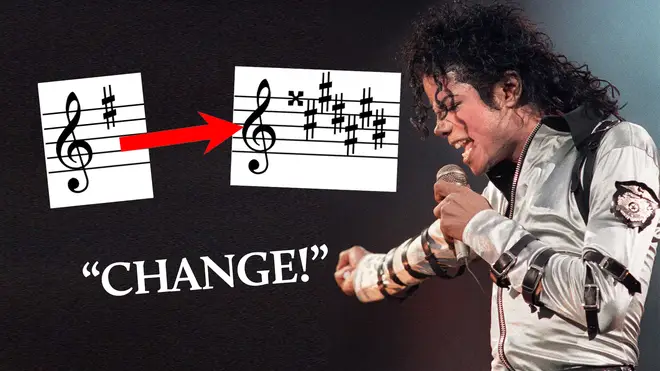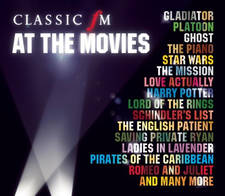Let’s take a moment to enjoy the greatest key change in pop music history
25 August 2021, 20:59 | Updated: 26 August 2021, 14:53

Michael Jackson’s ‘Man In The Mirror’ features one of the most satisfyingly epic key changes in all music. With a little music theory at hand, we explore why it’s so good.
It’s no secret that Michael Jackson was a musical genius, whose vocal virtuosity and worldwide popularity changed the course of popular music through the ‘70s, ‘80s and ‘90s.
But we wanted to take a moment to celebrate one chord, and one moment in one song, which we reckon is simply one of the greatest modulations in over 100 years of music history.
So we’re looking specifically at this:

Michael Jackson - Man In The Mirror (Official Video)
The song in question is, of course, ‘Man In The Mirror’ and a classic pop anthem in tone and form. A semitone key change for a final chorus is a popular technique in many anthems, allowing for a rousing final chorus.
But somehow this one just feels perfect.
Read more: Definitively the greatest key changes in all pop music
It’s the pure audacity of this key change. For a start, it occurs on the word ‘Change’. Not only that, it occurs on the word ‘Change’ during a song ACTUALLY ABOUT change. Key change, changing person, on the word ‘Change’. It’s change central.
The song begins in humble, plain, unassuming G major. The harmony is sweet, fairly unadventurous, but functional. Jackson, a keen improviser, clearly enjoys rattling around G major and exploiting that killer 7th degree in his trademark high tenor voice. This gives the harmony tension and a sense of elevation.
But then, at around 2:50, it happens. Change happens.
In a stroke of genius, the key change itself is pre-figured with a moment’s silence, which completely removes the rug from under the listener’s ears (if that’s physically possible), and establishes a new reality of A flat major (or G sharp major, which looks more impressive) without so much as a cursory consultation period.
It is brazen, insane, wonderful.
And, like us, we reckon you’re wanting to hear it again and again.


























